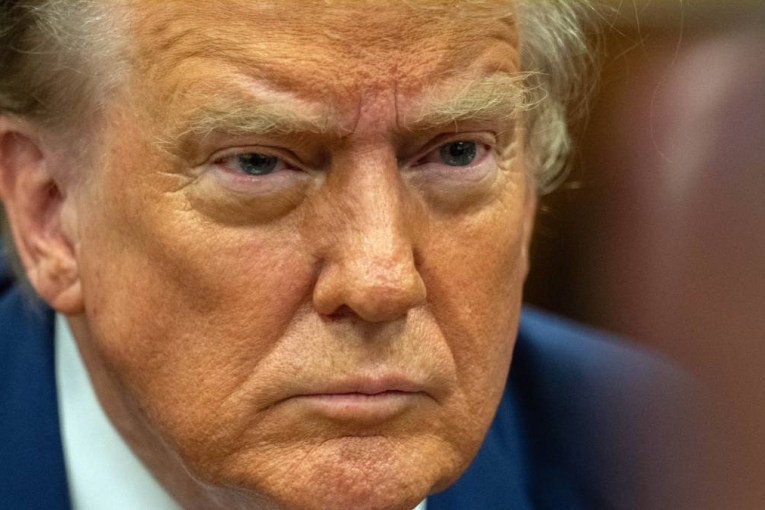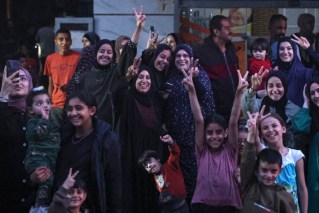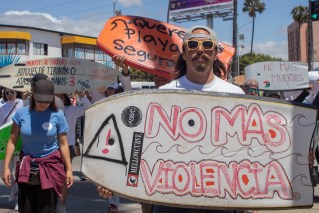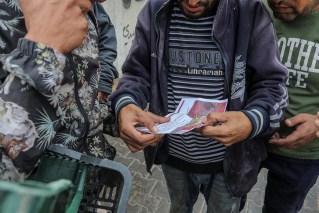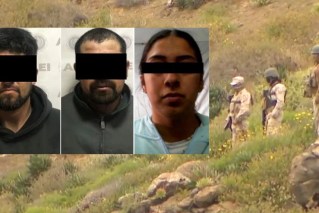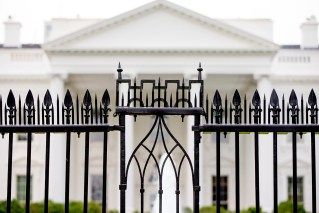Our Eurovision obsession
“Who is the more foolish? The fool, or the fool who follows him?”
So asked Obi Wan Kenobi in Star Wars in 1977 and while it’s possible he wasn’t talking about the extraordinary event that is the Eurovision Song Contest* and Australia’s strangely obsessive relationship with it, it’s a salient point. What is more bizarre? Eurovision, or the Australians who watch it?
This year, for the 31st time, SBS will bring us Eurovision. They will air the two Semi-Finals and the Final as well as supporting documentaries and a week long tongue-in-cheek Eurovision quiz which SBS Eurovision Co-Commentator Julia Zemiro promises “is not geeky information it’s very accessible” plus “I’ll be singing in Serbian so I think its worth tuning in just for that.”
On top of that, for the first time an Australian will be performing, representing Australia. Jessica Mauboy will be performing a song she wrote with Ilan Kidron of the Potbelleez, with Zemiro introducing the act – and Australia – to Europe and specifically the host city Copenhagen who won the home ground advantage after Denmark won last year’s competition with Only Teardrops by Emmelie de Forrest.

Denmark’s Emmelie de Forest wins the 2013 Eurovision Song Contest.
The “interval act” which takes place between the performances and the announcement of the voting, is a highly sought after slot with Mauboy filling the tapping shoes of such acts as Riverdance. She is the first singer from a non-European country to perform at the event.
“As an interval act it will be good to hear in the room if they relate to the humour we put up there,” says a confident Zemiro. “The song will get the room going. It’s got a good beat to it.” That should help it stand out she says, as in the competition “there’s a lot of ballads this year.”
So why does Australia get so foolish for Eurovision? Why in an age of instant gratification and social media event participation does Australia wilfully block their ears and close their eyes all day in order to experience the delayed telecast afresh in their homes or at designated Eurovision parties? For the audience is growing. In 2012 an average of 531,000 Australians watched the coverage. Last year more than 751,000 watched the final.
“Apart from Europe, Australia has really high numbers for watching it,” says Zemiro, adding that North America has “no idea” about the event, while South America and South Africa pale in their coverage. “We are definitely the only station outside Europe that puts that much effort in throughout. SBS and Australia are the only TV station that put that much attention focus and money into doing a broadcasted commentary and extra bits back stage.”
Our Euro-folly is no secret either. Mauboy’s performance is not the first time the Europeans have noted, and reciprocated our anomalous viewing. “We’ve been mentioned a little bit along the way,” says Zemiro. “From Oslo (in 2010) they interviewed a fan from Australia on the screen.” Then last year the interval to the second semi-final included a video explaining Australia’s euro-viewing.
“Last year Sweden were delighted to say ‘please make a bit for us, a two minute bit. We don’t get why you love it so explain it to us why you think it’s great’,” says Zemiro who fronted the video from Bondi Beach.
While the video was entertaining it didn’t really answer the question of why.
Or here without the intro (or the German voice over).
Zemiro attributes the love to the number of Europeans living in Australia. The real answer is really the network built to speak to them: SBS. Thirty years ago there was no channel like SBS anywhere else in the world. Every year they broadcast Eurovision, celebrating and gently mocking it first with Terry Wogan’s famous commentary until 2008, then with the pairing of Zemiro and Sam Pang. The result is generations of awareness, affection and kitsch-love.
The obvious next step was to sing, and SBS had a trump card when it came to making that happen. “With Denmark this lovely opportunity presented itself. They have an Australian who is part of the royalty here. If the TV host of the country is connected with you and likes the idea then you’re fine.”
Apart from Europe, Australia has really high numbers for watching it
As such SBS will air the second semi-final twice. Once on Friday morning, when Mauboy’s performance will be shown an hour after she is on stage, and again on Saturday night as part of the Eurovision weekend.
Notably it’s not the first time an Australian has sung at Eurovision, just the first time they have done so under our flag. Four Australians have competed before.
Olivia Newton-John was the first, in 1974, representing the United Kingdom. She came a very respectable 4th, a particularly estimable effort given the event was won that year by the event’s most famous champion: ABBA.
In 1996, another Australian represented the United Kingdom when Brisbane born Gina G gave the world ‘ooh ahh just a little bit’. She came 8th.
Most recently, Jane Comerford as part of the band Texas Lightning, represented Germany in 2006, finishing 14th.
On top of that, surreally in 1977 an Austrian song chose to make us the subject of their bizarre entry Boom Boom Boomerang, whose lyrics “Kangaroo, boogaloo, didgeridoo” make little sense but clearly refer to Australia.
For Australia though, it’s not a real competition until we’ve won it, and won it better than everyone else. So it’s lucky that we have.
Australian Johnny Logan is the only singer to have won the competition twice. He just did it for Ireland. Born in Frankston, Victoria, Logan moved back to Ireland when he was three, but he’s as Australian as Russell Crowe, Crowded House and, well Olivia Newton-John (who was born in the UK) as far as we’re concerned!
Logan in fact won the contest a remarkable three times, first as a singer in 1980, with What’s Another Year, then in 1987 with Hold Me Now, which he also wrote. His third win came in 1992, when he wrote Linda Martin’s winning entry Why Me. Plus in 1984, Logan composed the song Terminal 3 which placed a disappointing (for him) second.
1980
1987
1992
He even terrified a young girl as the interval performer in 1993.
So if we’re watching, and we’re singing, and we’ve even won it (better than anyone else) for Ireland, surely the only thing left is for us to enter? It’s not quite as insane a prospect as it first sounds. Israel and various Middle-Eastern and African countries qualify. Jerusalem has even hosted the event, whose entry rules revolve around membership of the European Broadcasting Union (EBU).
“Technically the gag always was if SBS were to pay the EBU a certain amount of money or to join we could be part of it,” laughs Zemiro, before emphasising “Technically.”
Well, technically, we’ve already won it. So let’s just sit back and watch Jess prove to Europe that she’s bigger than Riverdance.
No pressure.
Eurovision on SBS
The Eurovision Quiz airs on SBS Monday to Friday 8pm
Semi-Final 1 airs on SBS at 8.30pm on Friday 9 May
Semi-Final 2 airs at 7.30am on Friday 9 May and 8.30pm on Saturday 10 May
The Final airs at 7.30pm on Sunday 11 May.
*He wasn’t talking about Eurovision though Sir Alec Guiness was a huge fan and voted every year**
** There is no actual evidence that Sir Alec Guiness watched, voted in or knew of Eurovision.
